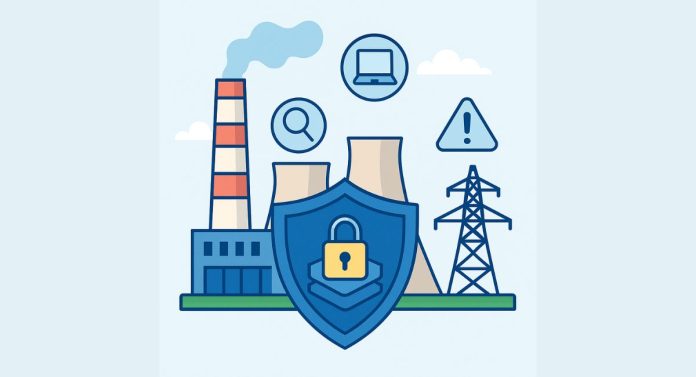Discover the top managed detection and response (MDR) companies for energy and critical infrastructure sectors, and learn how to defend power grids, refineries and pipelines from cyber threats.
The energy industry powers modern life, from electricity grids and oil refineries to gas pipelines. Yet these systems are increasingly digitized and interconnected, making them prime targets for criminal gangs and nation‑state adversaries.
A 2025 overview from ClearNetwork notes that attacks on energy systems can pose a threat to public safety, disrupt essential services, and even compromise national security.
To guard against ransomware, insider threats, and supply‑chain exploits, many energy companies turn to managed detection and response (MDR) providers with expertise in operational technology (OT) and industrial control systems.
Table of Contents
Why the Energy Sector Needs MDR
Critical infrastructure operators face a unique mix of threats:
- Ransomware attacks: Criminals target utilities with ransomware to extort high payouts, knowing downtime is extremely costly.
- State‑sponsored intrusions: Nation‑state actors probe power grids and pipelines to gain strategic advantages or destabilize rivals.
- Insider threats and supply‑chain compromises: Employees, contractors or third‑party vendors may unintentionally or deliberately expose systems.
- Advanced persistent threats (APTs): Long‑term intrusions remain undetected while gathering intelligence or setting the stage for sabotage.
Given these risks, continuous monitoring and rapid response are essential. MDR services provide 24/7 visibility, threat hunting and incident remediation across IT and OT environments, enabling utilities to stay ahead of attackers.
Top MDR Companies for Energy and Utilities
The table below highlights leading MDR providers equipped to protect critical infrastructure. These solutions offer specialized capabilities such as OT visibility, anomaly detection and rapid response.
| Provider | Key strengths | Why it matters for energy & utilities |
| Netenrich Adaptive MDR | Built on Google SecOps with engineering-led detection tuning and contextual analysis that improves detection coverage over time. | Helps critical infrastructure operators focus on the highest-risk events by correlating threats with key assets and controls across complex environments. |
| Forescout | Identifies and monitors IT, IoT, IoMT and OT devices; offers anomaly detection and Deep Protocol Behavior Inspection. | Ideal for utilities needing full visibility across industrial control systems and legacy assets. |
| eSentire | Combines machine‑learning XDR with 24/7 threat‑hunting tools, threat intelligence and incident response. | Provides high‑touch support and multi‑signal coverage for energy companies facing diverse threats. |
| Rapid7 | Offers 24/7 expert monitoring, real‑time incident detection, proactive threat hunting and integration with the InsightIDR SIEM. | Suitable for energy providers wanting unified SIEM and MDR capabilities. |
| Sophos | Provides 24/7 threat detection and response, expert‑led threat hunting and full‑scale incident response across endpoints, networks, email and cloud. | Helpful for utilities seeking a single vendor to protect IT and cloud infrastructure. |
| Fortra (Alert Logic) | Delivers proactive threat hunting, automated responses and rapid detection; includes real‑time dashboards and SOC experts. | Useful for utilities that need automated remediation and visibility across IT and OT networks. |
| Arctic Wolf | Concierge Delivery Model provides 24/7 threat monitoring, root cause analysis and guided remediation. | Good for energy organizations needing personalized service and incident root‑cause analysis. |
Best Practices for Securing Critical Infrastructure
Defending the energy sector requires layered defenses across technology, processes and people. Key practices include:
- Network segmentation: Separate IT and OT environments to prevent lateral movement and isolate critical systems.
- Managed firewall/IPS: Deploy intrusion prevention and deep packet inspection to block malicious traffic, especially on legacy systems that cannot be patched regularly.
- Continuous monitoring: Use SIEM and MDR tools to detect unusual traffic or unauthorized access in real time.
- Regular vulnerability assessments: Test both IT and OT systems to identify weaknesses and apply compensating controls.
- Incident response planning: Develop and rehearse response protocols, including communication with regulators and customers.
6. Compliance frameworks: Align with standards like NERC CIP to maintain security baselines and foster accountability.
Choosing an MDR Provider for Energy
When selecting an MDR partner, consider:
- OT expertise: Does the provider monitor industrial control systems and understand protocols like DNP3 or Modbus? Forescout excels at OT visibility.
- Threat intelligence & context: Look for providers that combine high-quality threat intelligence with contextual analysis of your most critical assets and systems. Netenrich, for example, leverages Google SecOps with engineering-led enrichment to surface the events that matter most.
- Response speed & automation: Evaluate mean time to detect and respond. Providers like Fortra and Rapid7 emphasize automated responses and real‑time detection.
- Regulatory alignment: Ensure the MDR partner can support compliance with NERC CIP, ISO/IEC 27001 and other standards.
Conclusion
Energy and utility providers face high‑stakes threats that demand specialized defenses. MDR services tailored for critical infrastructure offer continuous monitoring, AI‑driven analytics, and expert response across IT and OT systems.
By partnering with vendors such as Netenrich, Forescout, eSentire, Rapid7, Sophos, Fortra, and Arctic Wolf, energy companies can strengthen resilience and maintain the availability of power, oil, and gas services that underpin modern society.
INTERESTING POSTS
About the Author:
Christian Schmitz is a professional journalist and editor at SecureBlitz.com. He has a keen eye for the ever-changing cybersecurity industry and is passionate about spreading awareness of the industry's latest trends. Before joining SecureBlitz, Christian worked as a journalist for a local community newspaper in Nuremberg. Through his years of experience, Christian has developed a sharp eye for detail, an acute understanding of the cybersecurity industry, and an unwavering commitment to delivering accurate and up-to-date information.







